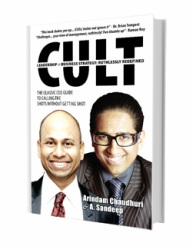The matter of the fact is that today, not only do we lack political will and stringent comprehensive laws to counter terrorism, our law enforcement agencies don’t even have a proper clue about the same. So much so, the terrorists are better versed about the loopholes in the existing anti-terror laws and abuse it to the hilt. And why shouldn’t they – not only are our laws old and crying to be updated, but they are also laden with loopholes. In spite of trapping the actual culprits, these laws have been used more to settle political and personal scores. Take for instance the Prevention of Terrorist Activities Act, better known as POTA, which was used by law enforcement agencies more to arrest people who were innocent rather than actual terrorists. The abuse and misuse of the law was so rampant that the law, for sometime, had to be repealed. For the uninitiated, this law was on the lines of UK’s Prevention of Terrorism Act and America’s PATRIOT Act. However, unlike our law, their laws strengthened the anti-terror operations and aided the counter-terrorism cell.
The same can be reiterated for the Armed Forces Special Powers Act (AFSPA) which, in spite of providing huge strength to counter insurgency operations, failed to reap any fruitful results; on the contrary, the act was seen being abused by police officers in the north-east region of the nation. The next in line is the Terrorist and Disruptive Activities (Prevention) Act of 1987 (TADA). This anti-terrorist law allowed police to prosecute criminals who have testified to their crime. Out of more than 50,000 people detained under TADA (by 1992, after which the law was invoked on only a few occasions), only 0.80 per cent were actually convicted. The new modification made in these laws post 26/11, and introduction of section 43A has, rather than making the law comprehensive, given more power to police forces. Every time we bring a new law assuming in good faith that the police or the army will use it for the right reasons, we see them misusing the same laws with impunity. Each of these laws, therefore, should come with stringent punishments meted out for their misuse as well. Read More....
An Initiative of IIPM, Malay Chaudhuri and Arindam chaudhuri (Renowned Management Guru and Economist).
For More IIPM Info, Visit below mentioned IIPM articles.
IIPM ranked No 1 B-School in India
domain-b.com : IIPM ranked ahead of IIMs
IIPM: Management Education India
Prof. Rajita Chaudhuri's Website
IIPM Proves Its Mettle Once Again....
Arindam Chaudhuri on Internet.....
Arindam Chaudhuri: We need Hazare's leadership
Professor Arindam Chaudhuri - A Man For The Society....
IIPM: Indian Institute of Planning and Management
-----------------------------------------------------------------------------------------------------------------------------

 RSS Feed
RSS Feed